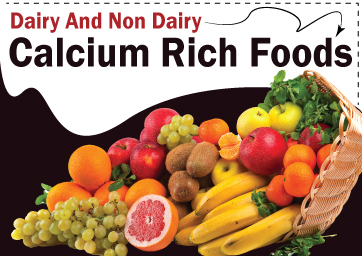While you will find tons of articles highlighting the importance of a healthy heart or good mental health, the benefits of healthy strong bones remain mostly whispered. But healthy bones are equally essential.
Our bones support body movement and posture
They protect vital organs like the heart and lungs
They help perform various movements and activities
They also store essential minerals for body needs
And, they produce blood cells too.
Luckily, you don't have to go beyond your comfort to add these calcium food sources to your diet. Many tasty foods have lots of calcium. And, they are easy to make or buy.
Milk, Cheese & Yogurt: These dairy staples are part of people’s diets across the globe. They are a well-known calcium source and come in various options. They're also a good source of vitamin D, which helps your body absorb calcium effectively.
Leafy Greens: You must have heard it a thousand times. But we will say again, “Leafy greens are a must-add to your diet”. Kale, collard greens, and mustard greens are excellent to make your nones string for life. You can eat them raw as part of your morning salads, or even add them to your meals as stir-fries or soups.
Plant-Based Options: If you are following a vegan diet and looking for dairy alternatives- Soybeans, tofu, and fortified soy drinks are excellent choices. They offer a good amount of calcium alongside protein and other essential nutrients.
Nutty Goodness: If you are looking for calcium options that are easy and eatable in between meals - try almonds and nuts. They're full of healthy fats and fibre, perfect as snacks or toppings for salads, yoghurt, or oatmeal.
Fortified Favorites: Many breads and cereals are rich in calcium, providing an easy way to boost your intake throughout the day. Check the label to see the calcium content and choose options that fit your dietary needs.
Canned Fish: Canned sardines and salmon (with bones included) are a double win! They provide a good amount of calcium along with heart-healthy omega-3 fatty acids.



 Contact Us
Contact Us

 Hospitals
Hospitals
 Doctors
Doctors
 Diagnostic
Diagnostic
 Pharmacy
Pharmacy
 Health Tips
Health Tips
 Blog
Blog
















Comments